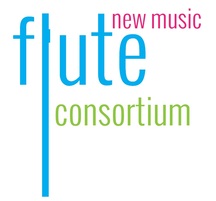Get to Know...Sen Lin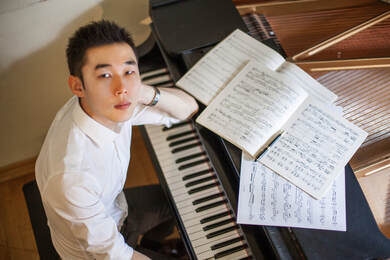 We consider ourselves very lucky to be exposed to so many wonderful composers through the FNMC Composition Contest. It offers us the opportunity to become familiar with the music of composers from throughout the United States and all over the world! We’ve had finalists and winners from Argentina, Australia, China, Croatia, Greece, Hong Kong,Italy, Korea, Mexico, Portugal, Spain, Switzerland, and Taiwan. From 2014-2018 we’ve recognized 58 different composers through the composition competition, many of whom we would not have had the opportunity to learn about otherwise. A perfect example of this is Sen Lin. Sen was born and raised in China and is currently working towards his master’s degree and living in Weimar, Germany. He doesn’t have a web presence at this time, so without his entry in the competition our members wouldn’t have had the opportunity to learn about his Fantaisiestueck for flute and alto flute (finalist flute duo 2018). Fantaisiesteuck is a challenging romp with lots of opportunities to explore a variety of extended techniques and colors. Q&A with Sen… Who is/are your favorite “new music” composer/s and why? This position is constantly changing, but at the moment it belongs to Chaya Czernowin. Her music possesses an almost primordial gaze, originating from an immense and bottomless core, at this point to reveal some physical things. The process of revelation is a central concept to Czernowin’s oeuvre. This is what makes me very interesting. When did you join FNMC and what attracted you to the organization? At first I heard the FNMC was influenced by composer Zhou Long and his flute works. From there I also knew about the FNMC Composition Competition. I think this competition is very meaningful and helpful for composers, flutists and the development of new flute works. Last year I saw information about the FNMC Composition Competition on the Internet, so I did not hesitate to participate. More About Sen… Sen Lin was born in 1991 and started his musical education already in his childhood studying piano, music theory as well as composition in Suihua(China, Heilongjiang Province) where he grew up. After finishing high school, he studied composition under Prof. Jixue Wu at Shenyang Conservatory of Music in Shenyan during 2010-2015. Since 2016 he began his Composition Master studies with Prof. Michael Obst and Dr. Ulrich Kreppein at University of Music Franz Liszt Weimar, Germany. In 2016 he was the 1st Prize Winner at the international “Musica per Archi” Composers Competition. After one year he recieved a third prize at the 2nd Edition Alfred Schnittke International Composition Competition 2017, Ukraine. The awarded work Blue Flame is published by Italian Aldebaran Editions in 2018. His works include orchestra, chamber music as well as film music. His music has been performed by many professional ensembles and organizations such as DNT(Deutsche Nationaltheater und Staatskapelle Weimar), Ensemble Recherche and Lviv National Philharmonic Symphony Orchestra in Germany, Italy, Ukraine, China and the USA.
1 Comment
Catch up With...Cherise Leiter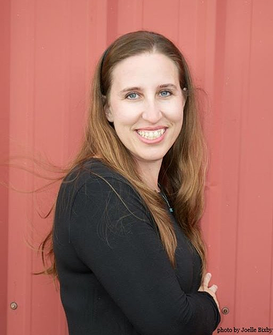 For those who follow our composer spotlights, Cherise Leiter may be a familiar face. She was a finalist in 2014 for her beautiful work for flute/alto flute and cello, Chroma. We loved the timbres she created in that duo and we were pleasantly surprised when it was revealed that she was the winner of this year’s chamber music category for The Life in the Day for flute/alto flute, guitar, and cello. Again, she deftly creates unique and beautiful timbres and beautiful melodies, this time adding the guitar to the ensemble she so skillfully composed for in Chroma. We're pleased to share that Cherise will be meeting with Nicole Riner, our wonderful Membership and Communications chair, in 2018 and we look forward to sharing their conversation, but in the meantime we wanted to give you all an opportunity to catch up with Cherise. We look forward to hearing two works Cherise completed recently, a duo for two flutes entitled Vignettes and a work for flute and fixed electronics, Penitence and Praise. We’re also really pleased to learn that Chroma has been recorded. There are more details about all of these exciting announcements in the Q&A below! Q&A with Cherise… What about new music for the flute appeals to you? One of the things I love about the flute is that despite its ancient and glorious lineage and the tremendous body of literature written for it, we can still discover new sounds, new techniques, and new effects. That is what appeals to me so much when writing for the flute. I play just enough flute to be a danger when writing for it, and I love experimenting with techniques, fingerings, etc. While my chamber piece "The Life in a Day" is in the more traditional vein, I still had fun exploring meter and tone color. I also love the fact that flutists really dig new music and are not the least bit scared of it! That is VERY attractive from a composer's point of perspective. Describe your musical background and current activities. I have a Bachelor’s degree in music theory, and was perfectly content in my Common Practice literature and analysis, until I had to take a class that was intended to introduce theory majors to the art of composing. I entered it kicking and screaming (at least internally), and left it headed to graduate school as a composition major. I have composed a number of pieces for flute in the past few years—primarily in chamber settings—and have enjoyed it very much. I now have a piece for flute and fixed electronics (Penitence and Praise) that was a commission from Colleen White, which pushed me into a new area. I also recently finished a flute duo which was commissioned and premiered by Naomi Seidman and Cristina Ballatori at the most recent NFA conference. Outside of the flute world I am finishing up a piece for wind ensemble (although it does have flutes in it!) and also working on a piece for solo piano—a set of etude variations on the folk song written by the female outlaw, Belle Starr. Do you have any upcoming events that you would like our friends and followers to know about? I am thrilled that “Chroma,” a piece I composed for flute and cello (and that was an FNMC finalist in 2014), has been recorded by the Jano Duo on their recent CD “Dreaming in Color.” They did an AMAZING job with it, and with the pieces of five other composers—all recent pieces! What advice can you give to flutists about approaching new music in practice? Advice to flutist when approaching new music: don't be afraid to play around and try new sounds and timbres, even if they are not what we traditionally think of as 'pretty' sounds. As a composer I love all the colors the flute can produce! More About Cherise… Born in Florida, Cherise Leiter received a B. M. in Music Theory and an M. M. in Composition from the University of Florida where she studied with Dr. Budd Udell. She is currently Professor of Music at Metropolitan State University of Denver, teaching music theory and composition. A composer whose output includes works for choir, piano, voice, band, orchestra and assorted chamber ensembles; her compositions have been performed throughout the United States, Canada, Scotland, France, Italy, Romania, and Japan. She was a featured composer at the New Music Symposium, the University of Central Missouri’s New Music Festival, the Aspen Composer’s Conference, the Women Composers Festival, the Atlantic Center for the Arts, June in Buffalo, and Brush Creek Foundation for the Arts. In her spare time, Ms. Leiter is an avid knitter, hiker, swimmer, cook, and bibliophile. She also has a vested interest in anything made of chocolate. She can be reached at [email protected], or www.cherisedleiter.com. If you liked The Life in a Day… American Folk Suite Instrumentation: flute and soprano Duration: 11’ Chroma Instrumentation: flute/alto flute and cello Duration: 9’ Chromaticity Instrumentation: flute/alto flute, clarinet and bassoon Duration: 9’ Penitence and Praise Instrumentation: flute and fixed electronics Duration: 9’ Prelude and Fugue Instrumentation: flute choir Duration: 7’15” Sacred Harmony Instrumentation: flute choir The Life in a Day Instrumentation: flute, guitar, cello Duration: 18’ Vignettes Instrumentation: flute and alto flute Duration: 6’ Get to Know...Julie Barwick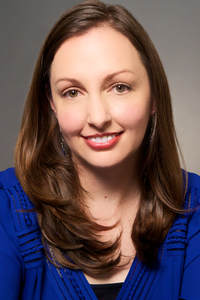 Flutists love a good duet! We can always find a friend to play with and they’re great to program on guest artist programs with the hosting teacher as well as for flute fairs/conventions, and of course, to use with our students to help them improve as chamber musicians. Julie Barwick has introduced us to another great option this year with Conversations for two flutes (flute two doubles on alto flute). Conversations was a finalist work in the flute duo category. You can listen to a great recording on Julie's SoundCloud page. Julie has several other works for flutes, including a recently completed flute trio, Personal Space, commissioned by Areon Flutes. We were also excited to see that Julie is an advocate for women in the creative arts through her Helia Arts Collective. As an organization run by women, we’re always super excited to see women advocating for the arts and female composers. Julie is joining a fantastic group of female composers who have found success in our completely blind competition. Of the 13 winning compositions, five were written by women and eight of twenty-seven winning and honorable mention works were composed by women. Overall of the forty-six composers who have been selected as finalists, honorable mentions or winners roughly a quarter (11/46) are women and two of them were finalists in multiple years! Of the total pieces honored, 14 out of 56 (an exact quarter) are by women! We’ve loved seeing that the blind process has resulted men and women, young and old(er) (18-72), from all over the US and fifteen countries being honored for their work. We love that your background is irrelevant in our competition, your music speaks for itself! Q&A with Julie… What about new music for the flute appeals to you? As a composer, I find the extreme versatility and agility of the flute very exciting. The wealth of sounds that can be created with just a solo flute is astounding. In my experience, I also find flutists to be some of the most dedicated and open-minded musicians, especially when it comes to creating new music. I wrote Conversations for Siroko Duo (Jessie Nucho and Victoria Hauk) and not only are they both amazing flutists, open to nearly anything, but they are also strong champions of commissioning and performing new music. Who are your favorite “new music” composer/s and why? The list of my favorite new music composers is impossibly long, but I do want to highlight the Common Sense Composers Collective, and especially the composers Belinda Reynolds, Dan Becker, and Marc Mellits. They have inspired me through their teaching (I have both studied with Becker and Reynolds), their collective philosophy that emphasizes collaboration, and of course their music. Describe your current activities. Currently, I am focused on two main projects. The first is I am the 2017-18 Composer-in-Residence for Elevate Ensemble, a San Francisco Bay Area new music ensemble. I have two commissions from them, and currently working on the second, a chamber symphony. I am also a recent co-founder of Helia Music Collective. I formed Helia Music Collective with fellow composer, Emma Logan, as way for us to support the creative endeavors of women in music. Earlier this year we had our first concert/collaboration with Siroko Duo that featured all new music written by women. We are currently planning our next project for 2018. Do you have any upcoming events that you would like our friends and followers to know about? As mentioned above, as part of my residency with Elevate Ensemble, I'm working on a commission for chamber symphony (including one flute!), to be paired with Schoenberg's pivotal Chamber Symphony. The concert will be at SOMArts in San Francisco, May 19. Details about the concert can be found here: https://elevateensemble.com/events/transformations/ More About Julie… Julie Barwick (b. 1983), is a composer and pianist originally from Southern California and now based in San Francisco. Drawing inspiration from her classical and jazz background, she not only enjoys writing for traditional chamber music ensembles, but also non-traditional ensembles as well as experimental jazz groups. Her music has been performed throughout the Bay Area and US, and was recently selected to be on the Verdant Vibes Benefit Concert in Rhode Island in February 2017. As a winner of the 2016 Areon International Composition Competition, she was commissioned to write her piece, Personal Space, for Areon Flutes. Julie is currently Elevate Ensemble’s 2017-18 Composer-in-Residence, and will be writing two new pieces for Elevate this season. Other recent projects include commissions from San Francisco Guitar Quartet, Siroko Duo, Jill Morgan Brenner, Carla Fabris, Andronica Trio, Hot Air Music Festival, and Ignition Duo through the Guerrilla Composers Guild. Julie received her B.A. in music from the University of California, Berkeley and her M.M. in music composition from the San Francisco Conservatory of Music. She has studied with composers Belinda Reynolds, Dan Becker, David Garner, Cindy Cox, and Henry Threadgill. Please visit her website at juliebarwick.com to learn more. If you liked Conversations… Flute only
Chamber, with flute
Get to Know...Stephen Lias 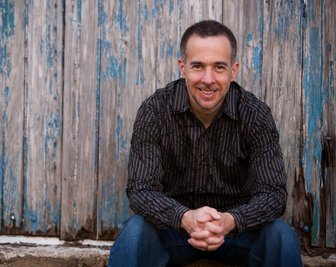 Stephen Lias is a busy man! He has several exciting upcoming performances, just completed a new commission, and teaches full-time at Stephen F. Austin State University. We’re so happy he found time to share some of his thoughts with us! We work hard to just what he suggests; support works and provide opportunities for them to be heard in multiple performances! Many of you may have heard his Sonata for flute and piano, which has achieved considerable popularity. Stephen’s work for solo flute, Flight of Fancy, was a finalist in the 2016 FNMC Composition Contest. Flight of Fancy was commissioned by the Texas Flute Society for the 2014 Myrna W Brown Young Artist Competition. Olivia Boatman will perform Flight of Fancy at the Florida Flute Convention on Saturday January 28th, if you’re attending don’t miss out on the opportunity to hear Stephen’s wonderful work! Q&A with Stephen… What about new music for the flute appeals to you? One of the reasons that it is so fun to write for flute is how the community of flute players embraces and champions new music. In general, instruments with older repertoire and longer histories (like horn or cello), tend to be less embracing of contemporary pieces, while younger instruments (saxophone and percussion) are naturally drawn to newer pieces. Flutists are an exception to this trend. I've attended many flute conferences and am always delighted with the number of world premieres and recent works by living composers. Describe your musical background and current activities. Although I don't consider myself a very old composer, my creative life has already gone through a number of phases. My output has (at various times) focused on chamber music, or theatrical incidental music. For the last eight years, however, I've been focusing on writing pieces inspired by wilderness and the national parks of the United States. This new chapter has let me to serve as Artist-in-Residence at Glacier, Denali, Rocky Mountain, Gates of the Arctic, Glacier Bay, and other national parks, and the resulting pieces (both chamber and symphonic) have been performed all over the world. Do you have any upcoming events that you would like our friends and followers to know about? The most exciting upcoming performance will be in March when the Boulder Philharmonic presents my new piece "All the Songs that Nature Sings" at the Kennedy Center for the Performing Arts as part of the SHIFT Festival of American Orchestras. This work was commissioned with funds from the National Endowment for the Arts' "Imagine Your Parks" program and celebrates Rocky Mountain National Park. There are lots of other performances coming up as well, and they can all be found at: http://www.stephenlias.com What advice can you give to flutists about approaching new music in practice? The biggest request I always have of flute players who perform contemporary music is that they commit to helping the "life of the piece". It is very fashionable to commission and premiere a new piece, but for a new work to get any traction within the flute community, it will need more than a premiere... it will need multiple performances and teachers willing to recommend the piece to their students. The best collaborations between composers and performers come when the performers maintain a commitment to the pieces. More About Stephen… The music of STEPHEN LIAS (b. 1966) is regularly performed in concert and recital throughout the United States and abroad by soloists and ensembles including the Arianna Quartet, the Anchorage Symphony, the Oasis Quartet, the Fairbanks Summer Arts Festival Orchestra, the Ensamble de Trompetas Simón Bolívar, the Boulder Philharmonic, and the Russian String Orchestra. His music is published by ALRY Publications, Brassworks 4, Cimarron Music Press, Alias Press, and Warwick Music, and appears on compact discs from Centaur Records, Teal Creek Music, Mark Records, and Parma Records. His pieces are regularly featured at major national and international conferences including the International Trumpet Guild, the North American Saxophone Alliance, and the ISCM World Music Days. Lias is also active as a composer of theatrical incidental music and served for eleven years as Composer in Residence and Music Director at the Texas Shakespeare Festival. Recently, Stephen has become increasingly focused on being an adventurer-composer. His passion for wilderness and outdoor pursuits has led to a growing series of works about the national parks of the US. He has had residencies at Rocky Mountain, Glacier, Denali, Glacier Bay, Bering Land Bridge, and Gates of the Arctic National Parks, and has written over a dozen park-related pieces that have been premiered at conferences and festivals in such places as Colorado, Texas, Sydney, and Taiwan. Upcoming performances are planned for Fairbanks, New York City, Washington D.C. and New Hampshire. Among his current project is a new commission from the Boulder Philharmonic (funded by the National Endowment for the Arts) to create an original piece inspired by Rocky Mountain National Park. He is the founder and leader of Alaska Geographic's annual "Composing in the Wilderness" field seminar. Stephen Lias received degrees from Messiah College, Stephen F. Austin State University, and Louisiana State University. His teachers have included Dinos Constantinides, Dan Beatty, and Darrell Holt. He is a Distinguished Arts Associate of Sigma Alpha Iota International Music Fraternity and a member of ASCAP, NACUSA, the College Music Society, the Society of Composers, Inc, and the American Composers Forum. He is the Texas delegate to the International Society of Contemporary Music and serves as the Chair of the judging panel for the ISCM-IAMIC Young Composers Award. He currently resides in Nacogdoches, Texas where he is Professor of Composition at Stephen F. Austin State University. If you liked Flight of Fancy… Central Park Suite Instrumentation: woodwind quintet Duration: 12’ Year: 1991 rev. 2001 Forever Alive, Forever Forward Instrumentation: flute, clarinet, violin, cello, piano, and percussion Duration: 6’ Year: 2016 The Ghosts of Mesa Verde Instrumentation: for two flutes (doubling percussion) Duration: 8’ Year: 2013 Glide Instrumentation: woodwind quintet + alto sax Duration: 6’ Year: 2007 Jeffrey Pine Instrumentation: Pierrot ensemble Duration: 6’ Year: 2016 Lechuguilla Instrumentation: flute and clarinet Duration: 5’ Year: 1995 Mélange of Neumes Instrumentation: flute choir Duration: 12’ Year: 2009 Sonata for flute and piano Instrumentation: flute and piano Duration: 20’ Year: 2003 Get to Know...John Moody 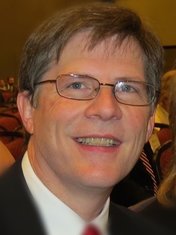 Through the Composer Spotlight series, we’ve discovered that many of the pieces originated through a personal connection. Tutti Frutti (for Two-ti Virtuosi Flutti) by John Moody, is no exception. John composed it as a gift to his cousin, Turi Scilipoti, in honor of his graduation from Eastman in 2016. Tutti Frutti (for Two-ti Virtuoso Flutti) received an Honorable Mention in the Newly Composed Category in this year's FNMC Composition Competition. John was busy writing for flute in 2016, along with Tutti Frutti, he composed two other chamber pieces, Drip for woodwing quintet with piano and Falling Up for flute, oboe, synthesizer, and looper which was premiered January 9, 2017 in Spartanburg, SC. We’re excited about two upcoming performances of Tutti Frutti! FNMC members Kallie Snyder and Sarah Jane Young will perform the complete work at the Florida Flute Convention on January 28, 2017 and Emily Nazario and Brittany Trotter will perform select movements at the Mid-South Flute Convention. Don’t worry if you won’t be able to attend one of those performances, you can listen to a great performance on his website or SoundCloud page! Q&A with John… What about new music for the flute appeals to you? The flute is a very nimble and versatile instrument, with a beautiful tone. It is also capable of several "special effects". When I write music for the flute I try to take advantage of these attributes! Who is/are your favorite “new music” composer/s and why? Lately I've been listening to lots of Unsuk Chin. I think her music is fascinating - it is virtuosic and full of special effects. In spite of the dissonance in her works there seems to be an intriguing tonality present in her music that I am trying to understand. I have also always liked the music of Jacob Druckman and John Harbison. What is/are your favorite “new music” piece/s and why? I think Unsuk Chin's Violin Concerto is amazing - as is her Cello Concerto. Jacob Druckman's "Aureole" was the first "New Music" piece that I ever really "liked". I first heard it back in the eighties when my wife played it with the Charleston Symphony. I was totally drawn in to the music, and after the piece I thought to myself, "Oh my, I think I actually LIKED that piece of New Music!" John Harbison's "Symphony No. 2" is a wonderful piece, as well as the "Mirabai Songs" found on Dawn Upshaw's amazing debut album. Describe your musical background and current activities. I have a BME in Choral Music from the University of South Carolina. I took a composition class and loved it. So, I went on to get a Masters Degree in Composition from USC, then we moved up to Boston, where I got my Doctorate from Boston University. When I graduated the college composition jobs were scarce. I found a wonderful High School choral job in Spartanburg, South Carolina where I have been for the past twenty years. I have always stayed very active in composition, however. Now that my children are out of the house, I am composing much more. Along with the composition and choral music I have also been an active jazz pianist. What advice can you give to flutists about approaching new music in practice? I advise musicians to approach New Music with an open mind. Also, dig deep into the piece and find the music that is in there. What I love is when a great performer finds something that I didn't even think about in my music. There is this possibility for synergy that is so great in music, and when it happens the resulting performances can be truly stunning! I think this is true regardless of the genre of music. I advise the flute player to approach New Music the same way they approach any other kind of music - try to find the emotion that is hidden in those written notes, and bring it out. Strive for that synergistic experience between composer, performer and audience! More About John… John Moody lives in Spartanburg, SC where he teaches AP Music Theory and Music Tech at Spartanburg High School and directs the Second Presbyterian Chancel Choir. John received his undergraduate and Master’s degrees from the University of South Carolina where he studied with Fred Teuber and Gordon “Dick” Goodwin, and his Doctorate from Boston University where he studied with Marjorie Merryman and John Harbison. In addition to teaching and composing John is an active jazz pianist in the upstate of South Carolina. He has received several commissions from wind ensembles, chamber ensembles and choirs. His piece, “The Open Road”, for Wind Ensemble and Jazz Piano can be found on the recording “The Speed of Heat”,by the United States Air Force Academy Band, and recently his piece “Drip” won the “Treefalls call for scores” competition, and was premiered at the November 20, 2015 “Espresso Chamber Music” concert in Spartanburg, SC. For more information, please visit his website www.johnmoodymusic.com. It was created by his cousin Turi Scilipoti, for whom Tutti Frutti was written! If You Liked Tutti Frutti… Drip Instrumentation: wind quintet and piano Duration: 6’ Year of Composition: 2015 Falling Up Instrumentation: flute, oboe, synthesizer, looper Duration: 9’ Year of Composition: 2016 Get to Know...Greg Steinke 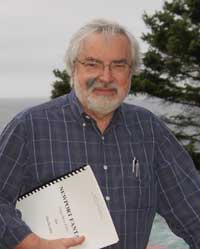 Oregon-based composer Greg Steinke has twice been a finalist in the FNMC Composition Contest. In 2014 for his flute duo Van Gogh Vignettes and in 2015 for his flute quartet In Memoriam: Sacagawea. FNMC members have performed his compositions at the Florida Flute Fair and Kentucky Flute Society Conventions. Q&A with Greg... Describe your musical background and current activities. I am a longtime composer/oboist/conductor who is still actively composing and occasionally performing on oboe and conducting. What flutes, brands, and accessories (if any) do you like to perform new music on? I prefer hearing my flute pieces performed on a Powell flute - it has always been my favorite. When did you join FNMC and what attracted you to the organization? Became a FNMC composer a couple of years ago - wanted to avail myself of performance opportunities for my flute compositions. More About Greg… Dr. Greg A Steinke is retired, former Joseph Naumes Endowed Chair of Music/Art and Associate Dean of Undergraduate Studies, Marylhurst University, Marylhurst, Oregon; Associate Director, Ernest Bloch Music Festival (‘93–97) and Director, Composers Symposium (‘90–97) (Newport, OR); served as the National Chairman of the Society of Composers, Inc. (1988–97). Composer of chamber and symphonic music and author with published/recorded works and performances across the U. S. and internationally; speaker on interdisciplinary arts, and oboist specializing in contemporary music. Dr. Steinke is the current national president of NACUSA and also serves on the NACUSA Cascadia Chapter Board. Learn more at www.gregsteinke.com If you liked In Memoriam: Sacagawea and/or Van Gogh Vignettes... CROSS CURRENTS, (for Reciter and Chamber Ensemble (Flute/Native Flute, Violin, Trombone, Contrabass and Piano); 2004 ECHO POINT LOOKOUT An Australian Blue Mountain Triptych (Image Music XXXIX) (for Reciter, Flute/Alto Flute, Oboe d’Amore, Contrabass and Piano); 2013 EXPRESSIONS IV Fantasy on a Painting of Edvard Munch (Image Music XXXV) for Oboe, Violin, Violoncello, and Piano (also version for Flute, trumpet, Violoncello, and Piano) 2012 IMAGE MUSIC from Songs of the Fire Circles for Flute, Oboe, Trombone, and Contrabass, 1982 INQUIETUDE for Flute Solo, 1995 A JAPANESE FOLK SUITE, (for Reciter and Flute/Alto Flute or Oboe); 1992, rev. 2001 EIN JAPANISCHES LIEDERBUCH for Soprano, Chamber Ensemble (flute, violin, cello, harp, piano/celesta, percussion) and slides, 1971 “LET US TAKE WHAT WE CAN FOR THE OCCASION,” (for Reciter, Flute/Piccolo, Contrabass and Piano); 2002 LYRIC FANTASY (A Music for Dance) for Flute, Alto Saxophone, and Guitar, 1980 Moments at CANYON DE CHELLY (Image Music XXVI) for Flute and Oboe Duet, 2005 Moments from WHITE BLOWING DAFODIL SEEDS (Image Music X-A) for Piano Trio, 2000, +o PUB; also versions for Flute,Violoncello and Piano, 2003 PUB, for Flute, Bassoon and Piano, 2004 PUB, and for Trumpet, Violoncello and Piano,2004 NORTHWEST SKETCHES II for Flute, Oboe, and Piano, 1980 NORTHWEST SKETCHES II-A for Flute, Oboe, and Wind Ensemble, 1982 NORTHWEST SKETCHES II-B for Flute, Oboe, and Chamber Orchestra, 1982 ONE BY ONE (Image Music II) for Flute and Harp, 1985 RANDOM BLACKOUTS III (Image Music XL) for Baritone, Flute, and 2 Percussion 2015 THREE SONNETS from William Shakespeare for Soprano, Flute, and Strings, 1962-64 TIP TOP TAP BALLROOM BONANZA for Alto Saxophone and Contrabass (also versions for flute, clarinet or soprano saxophone in B-flat and contrabass); 2014 TO GET TO FRESNO, (for Voice, Clarinet [or Flute] and Piano); 2004 TOMORROW ON YESTERDAY (Image Music IV) for Harp, 1989, @ (Carroll McLaughlin) + o PUB; as (Image Music IV-A) for Flute, Harp, Percussion, Harp Ensemble, and Trombone Ensemble, 1989 WIND RIVER COUNTRY for Woodwind Quintet, 1986 YAPONCHA - “Wind Spirit” (Image Music XX) for Flute, Viola and Harp, 2002 7 - 4 - 3 for Dancers and Chamber Ensemble (flute, cello, percussion), 1969 Get to Know...Paul Elwood 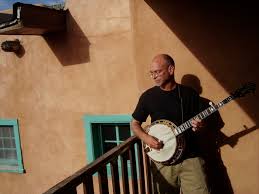 Our second Colorado-based finalist, Paul Elwood is Associate Professor of Music Composition at the University of Northern Colorado. Paul was a finalist in 2014 for his flute duet, Marfa Lights (flute 2 doubling piccolo). Q&A with Paul … What about new music for flute appeals to you? I love the timbral diversity of the instrument from diverse rich tones that the instrument produces to a wide variety of extended techniques available. I like the fact that many flutists with whom I've worked tackle a variety of techniques, rhythms, and compositions with an open mind. Who are your favorite “new” music composers and why? Thomas Adès for his inventive use of the instruments, and his complexity of writing at the micro- and macro-level; Augusta Read Thomas for not only musical construction but beauty of orchestration; Sean Friar and Andrew Norman ("Nouveau LA School Composers") for their youthful energy, virtuosic technique, and musicality, and Caroline Shaw for her unbridled and inspired writing. What are your favorite new music pieces and why? "Concentric Circles," violin concerto by Adès, a colorful, energetic composition; "Partita" by Caroline Shaw, for reasons cited above, and "Fighting Words" by Sean Friar using text from a variety of political speeches. There are a host of others from "classics" including Crippled Symmetry by Morton Feldman that uses beautiful, if random, combinations of colour between flute, glockenspiel, and piano, Stockhausen's early electronic work for their sheer monumental invention, and Messiaen's "Oiseaux Exotiques," an early strong influence on my work. Do you have any upcoming events that you would like our friends and followers to know about? I'm finishing a double concerto for violin and cello for the University of Northern Colorado orchestra, beginning a work for electric guitar and chamber ensemble commissioned by French experimentalist Jean Marc Montera, and working on an ongoing abstract multi-media homage to silent film actress Louise Brooks. She never compromised her intellectual integrity for fame - which ultimately cost her her career in film; there never seemed to wallow in self-pity after she made her last film (one of John Wayne's first) and ended up selling shoes in NYC for a spell. "Marfa Lights," the composition selected as a finalist in the FNMC competition, will be performed in November in Iowa City with the University of Iowa Percussion as part of my evening-length concept presentation titled "Strange Angels: exploring the paranormal." What advice can you give to flutists about approaching new music in practice? Listen to a lot of new music (listening to "old" music is a given) and keep an open mind to as much of it as you can. More About Paul… Paul Elwood’s music has been featured at festivals in Moscow, Sofia, Mexico City, Marseille, Wollongong (Australia), Edinburgh, Darmstadt, Madrid (July 2015), Strasbourg, and all over the U.S.A. Performers that have played his music include pianist Stephen Drury, percussionist Stuart Gerber, the Bent Frequency Duo, Zeitgeist (Minneapolis), the Callithumpian Consort (Boston), the North Carolina Symphony, the Charleston Symphony, the Wichita Symphony, Tambuco (the Mexican Percussion Quartet), saxophonist Jon Gudmundson, and Ensemble Signos (Mexico City). Recent recordings are on Innova Recordings as composer/banjoist with percussionist Famoudou Don Moye of the Art Ensemble of Chicago (titled Nice Folks, January 2015), Misfit Toys (2013, featuring drummer Matt Wilson, percussionist Dan Moore, and reed player Robert Paredes) and his own chamber and folk music, Stanley Kubrick’s Mountain Home (2011), with bassist Bertram Turetzky (2008), and Electric Cowboy Cacophony (2008). He is a Fellow of the American Academy in Rome and of the Camargo Foundation (Cassis, France), and he has won fellowships to the MacDowell Colony, the Djerassi Artists Foundation, the Ucross Foundation, and Fundacion Valparaiso in Spain. In 2000 he won the Sigma Alpha-Iota Inter-American Music Awards and was awarded a 2007 commissioning grant from the Jerome Foundation to compose for Zeitgeist. Elwood’s compositions are published by C.F. Peters, Smith Publications, and his own Western Wear Music Publishing. Elwood is an active five-string banjoist in both the realms of experimental and bluegrass music. In 2015 he played on the premiere of “Hanover” by Alvin Lucier, a composition using three banjos played with EBows with chamber ensemble. He is working on a new composition for solo banjo written for him by Christian Wolff And he has collaborated with guitarist Jean-Marc Montera, guitarist Eugene Chadbourne, cellist Hank Roberts, the Callithumpian Consort of the New England Conservatory, famed banjoist Tony Trischka, Zeitgeist, bluegrass legend John Hartford, percussionist Eddie Prévost, and pipa player Min Xiao-Fen, among many others. For more information visit his website: www.paul-elwood.com or blog http://soundchoice.typepad.com If you enjoyed Marfa Lights check out Paul’s other works with flute… A Vast Ocean of Promise Instrumentation: solo bassoon with flute, clarinet, piano, two violins, viola, and five-string banjo Duration: 18:00 Year of Composition: 1999 Along the Mystic Thruway Instrumentation: flute, piano, cello Duration: 9:00 Year of Composition: 1996 Alters Altered Instrumentation: flute and piano Duration: 6:00 Year of Composition: 1998 Blue Prairie Instrumentation: yodeler with flute, clarinet, piano, violin, and cello Duration: 15:00 Year of Composition: 1990 Circo De Montes, Teatro De Las Nubes Instrumentation: flute, clarinet, violin, viola, cello Duration: 9:30 Year of Composition: 2001 Deirdre’s Lament Instrumentation: flute, two percussion, piano, two violins, cello and banjo (Ballet) Duration: 50:00 Year of Composition: 2010 Entre Irse Y Quesdarse Instrumentation: flute, clarinet, piano, violin, and cello Duration: 13:00 Year of Composition: 1990 Four Directions Instrumentation: flute (wearing Velcro-soled shoes) Duration: 6:00 Year of Composition: 1991 Pilot Jack Knight: Aviator Instrumentation: flute, bass clarinet, piano, percussion, violin, and cello Duration: 4:30 Year of Composition: 1987 Road of Darkness, Distant Moon Instrumentation: double bass, flute/piccolo, percussion, five-string banjo Duration: 11:00 Year of Composition: 2003 Snow Falls Ceaselessly Instrumentation: flute, cello, percussion, piano, and audience players Duration: 15:00 Year of Composition: 1984 Stanley Kubrick’s Mountain Home Instrumentation: soprano, Appalachian instruments (fiddle, banjo, mandolin, guitar) flute, clarinet, piano, violin, cello Duration: 25:00 Year of Composition: 2001 Strange Angels: Exploring the Paranormal An evening length collection of works that includes Marfa Lights Year of Composition: 2010 The Eternal Sky Instrumentation: flute and piano Duration: 9:30 Year of Composition: 2008 The Vault of Heaven, The Crystal Sea Instrumentation: solo cello with flute, clarinet, percussion, piano, and violin Duration: 20:00 Year of Composition: 1995 The Void Beneath The Coffee Table Instrumentation: solo banjo, flute, clarinet, piano, violin, and cello Duration: 15:00 Year of Composition: 1989 Two Extremities Instrumentation: soprano, piano, bowed five-string banjo, flute, violin, and wine glasses Duration: 7:30 Year of Composition: 1998 Under the Table Instrumentation: soprano, flute, cello, and banjo Duration: 10:30 Year of Composition: 2012 Usher Instrumentation: flute, clarinet, percussion, piano, violin, and cello Duration: 40:00 Year of Composition: 1988 Verbum Salutis Instrumentation: flute, bass clarinet, cello, percussion, and hand signer Duration: 8:00 Year of Composition: 1985 |
AuthorThe Flute New Music Consortium is an organization dedicated to the creation and support of new music for the flute. Archives
June 2019
Categories
All
|

 RSS Feed
RSS Feed
